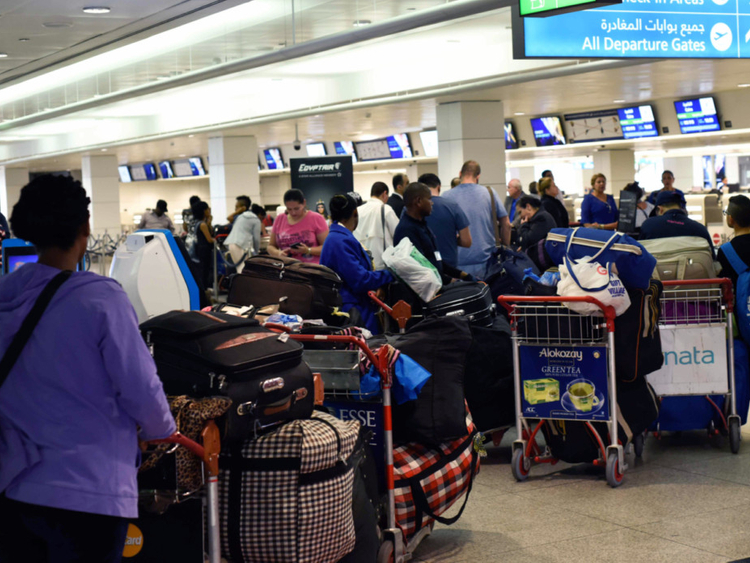Published
3 years agoon

The over 290-member airlines’ body, International Air Transport Association (IATA), has warned that the time required to process air travelling could hit 5 hours and 50 minutes soon except smart solutions are deployed to address the situation.
This is as the body also disclosed that, already, the duration has doubled due to new measures demanded to curtail the spread of Coronavirus pandemic.
IATA said: “Pre-COVID-19, passengers, on average, spent about 1.5 hours in travel processes for every journey (check-in, security, border control, customs and baggage claim).
“Current data indicates that airport processing times have ballooned to 3.0 hours during peak time with travel volumes at only about 30 per cent of pre- COVID-19 levels.”
It noted that greatest increases are at check-in and border control (emigration and immigration) where travel health credentials are being checked mainly as paper documents.
In expectation of travel surge which summer travels might trigger as borders open for non-essential movement, IATA has warned of potential airport chaos unless governments move quickly to adopt digital processes to manage travel health credentials (COVID-19 testing and vaccine certificates) and other measures.
It said that modelling suggests that without process improvements, the time spent in airport processes could reach 5.5 hours per trip at 75 per cent pre-COVID-19 traffic levels, and 8.0 hours per trip at 100 per cent pre-COVID-19 traffic levels.
“Without an automated solution for COVID-19 checks, we can see the potential for significant airport disruptions on the horizon. Already, average passenger processing and waiting times have doubled from what they were pre-crisis during peak time—reaching an unacceptable three hours.
“And that is with many airports deploying pre-crisis level staffing for a small fraction of pre-crisis volumes. Nobody will tolerate waiting hours at check-in or for border formalities.
“We must automate the checking of vaccine and test certificates before traffic ramps-up. The technical solutions exist. But governments must agree digital certificate standards and align processes to accept them. And they must act fast,” said Willie Walsh, IATA’s Director General.
Over the past two decades, air travel has been reinvented to put passengers in control of their journeys through self-service processes.
This enables travelers to arrive at the airport essentially “ready to fly.” And with digital identity technology, border control processes are also increasingly self-service using estates. Paper- based
COVID-19 document check would force travelers back to manual check-in and border control processes that are already struggling even with low volumes of travelers.
The airline association said if governments required COVID- 19 health credentials for travel, “integrating them into already automated processes is the solution for a smooth restartt,” as it would need globally recognized, standardised, and interoperable digital certificates for COVID-19 testing and vaccine certificates.
IATA enumerated advantages of digitallyed certificates as follows:
“Avoiding fraudulent documentation; Enabling advance “ready-to-fly” checks by governments; Reducing queuing, crowding and waiting time in airports through integration with self-service check-in (via the internet, kiosks or mobile phone apps);Increasing security through integration with digital identity management being used by border control authorities; Reducing the risk of f virus transmission via the person-to-person exchange of paper documents and building a global approach.
The G20 has identified a similar solution.
The G20 Rome Guidelines for the Future of Tourism call for a common international approach on COVID-19 testing, vaccination, certification, and information as well as promoting digital traveler identity,” IATA said.
“The G7 discussions, which commence on 11 June, are the next opportunity for leading governments to develop a solution around four key actions by agreeing to: Issue vaccination certificates based on World Health Organisation (WHO) Smart Vaccine Certificate data standards including QR codes; Issue COVID-19 test certificates in accordance with the data requirements set out by the International Civil Aviation Organisation (ICAO);
Accept digital COVID-19 test and vaccine certificates at their borders and Where governments require airlines to check travel credentials, governments should accept traveler friendly apps, such as the IATA Travel Pass, to efficiently facilitate the process.














